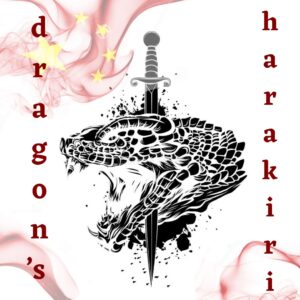
PATRIOTISM WITH CHINESE CHARACTERISTICS: Will Young China Be Able To Unshackle Her Thoughts From CCP??
In March this year, as Nike’s concern about “forced labour in, and connected to, the Xinjiang Uyghur Autonomous Region (XUAR)” circulated around Chinese media, it set in motion an unpredictable chain of events. While some celebrities started denouncing the statement, ending promotional partnerships, calling out Western media/company heads/foreign leaders; the millennials, armed with intense rage and internet power, were making bold statements by not just destroying all foreign goods in their possession but also by cyber-condemning all Chinese celebrities who hadn’t immediately renounced their association with such brands. Adding fuel to this was Hua Chunying, Foreign Ministry’s spokesperson, who supported this reaction and deemed it as “patriotism” and “quite natural and normal”.
If this is in fact “patriotism”, then how much “patriotism” is too much? Has the cyber-world wiped out whatever little facade of freedom was left in China? Does “Party controls all” policy include an individual’s freedom of thought too? Has Xi’s CCP been able to replicate the same level of blind-worship that Mao once had over the youth of China, which unfortunately led to the debacle of 1950s?
“The past was erased, the erasure was forgotten, the lie became the truth.” -George Orwell
Centuries ago, the Chinese emperors built the Great Wall. Aimed to protect the emperor’s reign from the influence/attack of the nomadic group of the North, the wall served its purpose for generations and through ages. Now, years later, the modern Chinese emperor, aka Chinese Communist Party (CCP), have replicated a virtual model of this Great Wall, the Great Firewall, exclusively to ensure a censored and ‘nationalistic’ cyber environment for the tech-savvy youth of the country.
With “patriotic hacking”, video games like Anti-Japan War Online (that puts the player in the role of a Chinese person fighting Japanese soldiers during the Second Sino-Japanese War), ensuring state sponsored production and promotion of ‘suitable’ movies and dramas, ensuring active media censoring of pro-West/pro-Japanese content, revamping the national education system and many such measures..the CCP has ensured that the post 1980s-90s generation grows up under the umbrella of the pro-Party propaganda and anti-foreign sentiments.
Has it been successful? Well, it takes but a glance at China’s past 10 years to say that it has been quite effective. Be it anti-democracy protests in Hong Kong or the movements to reunify with Taiwan; countering the reports of treatment of Uyghurs/Tibetans/other minorities or the opaqueness of CCP’s conduct during pandemic; the Chinese youth has been quite vocal in expressing their disdain of Western media and their active support for CCP, especially on Social Media platforms.
But what happens when some decide to break free??
Those who lose credibility will find it hard to make a tiny step in society
Premier Li Keqiang said in a speech in 2018
I remember reading Ma Jian’s Beijing Coma a few years back and a few lines from this stood out and I could never really forget-
Be it Tibetan or Xinjiang minorities or Falun Gong practitioners or Hong Kong pro-democracy protesters or prominent personalities like Jack Ma and Cai Xia or just a common voice; CCP’s modus operandi for anyone derailing from the path set by the Party has since time immemorial been – Surveillance, Suppression, Coercion and Confinement.
To check the rise of dissent, the Chinese government has put in place various projects for mass surveillance, on both (a) the cyber world by ‘online patriots’ and (b) on the streets by the millions of Party members. China’s mass surveillance programs like the Social Credit System, combines facial recognition system, big data analysis and AI to track every citizens’ every movement. And with laws like the new Anti-Espionage Law, 2020’s Regulations on Safeguarding Party Member’s Rights and 2017’s National Intelligence Law, the government has been able to not only restrict the ability to express dissent but has also cleverly camouflaged restrictions on expression and thoughts under the guise of “good moral guarantee”, effecting even the Chinese nationals settled aboard.
“It is rare fortune of these days that one may think what one likes and say what one thinks”
On March 25, when the Nike statement on Xinjiang resurfaced, there was a sudden flurry of activity on Chinese social media. But what was extremely interesting was the behavior of the “cyber-patriots” – who along with posting and re-posting the hashtag “I support Xinjiang’s cotton”, started actively praising and promoting all celebrities who spoke against such foreign brands while actively denouncing and bullying those who hadn’t done so immediately.
Someone once said, “This is slavery, not to speak one’s thought”. As CCP, often supported with re-education, censorship and military strength, stirs the “nationalism” fiber with the narrative of “Chinese Dream” and “rejuvenation of Chinese nation”, one can’t help but ponder on the trueness of these words-
“None are more hopelessly enslaved than those who falsely believe they are free”



Thanks for the good article, I hope you continue to work as well.
Thanks for the good article, I hope you continue to work as well.Спаситель на продажу
Hey I am so glad I found your blog page, I really found you by accident, while I was searching on Askjeeve for something else, Nonetheless I am here now and would just like to say kudos for a marvelous post and a all round exciting blog (I also love the theme/design), I don’t have time to read it all at the moment but I have bookmarked it and also added in your RSS feeds, so when I have time I will be back to read a lot more, Please do keep up the superb work.